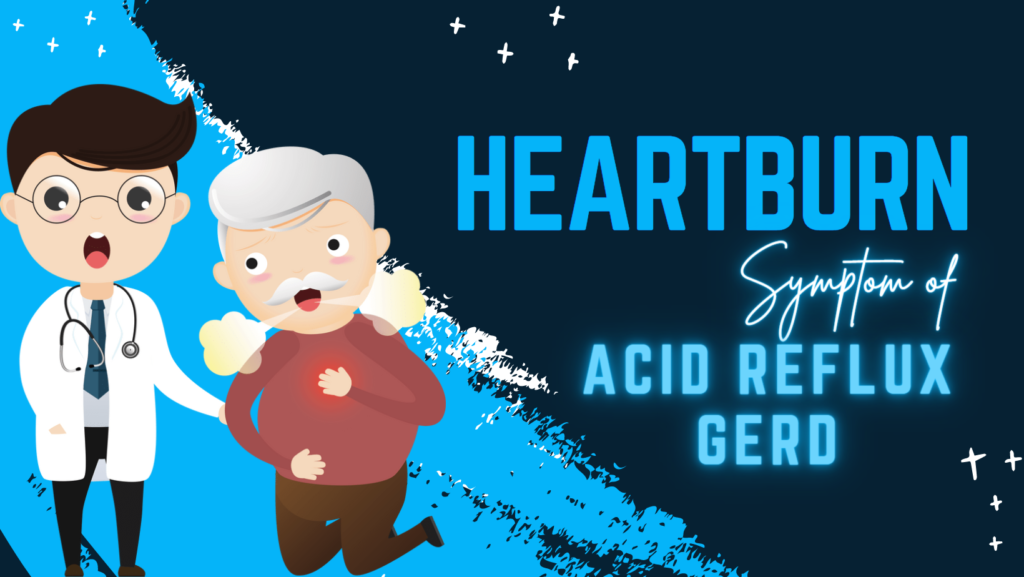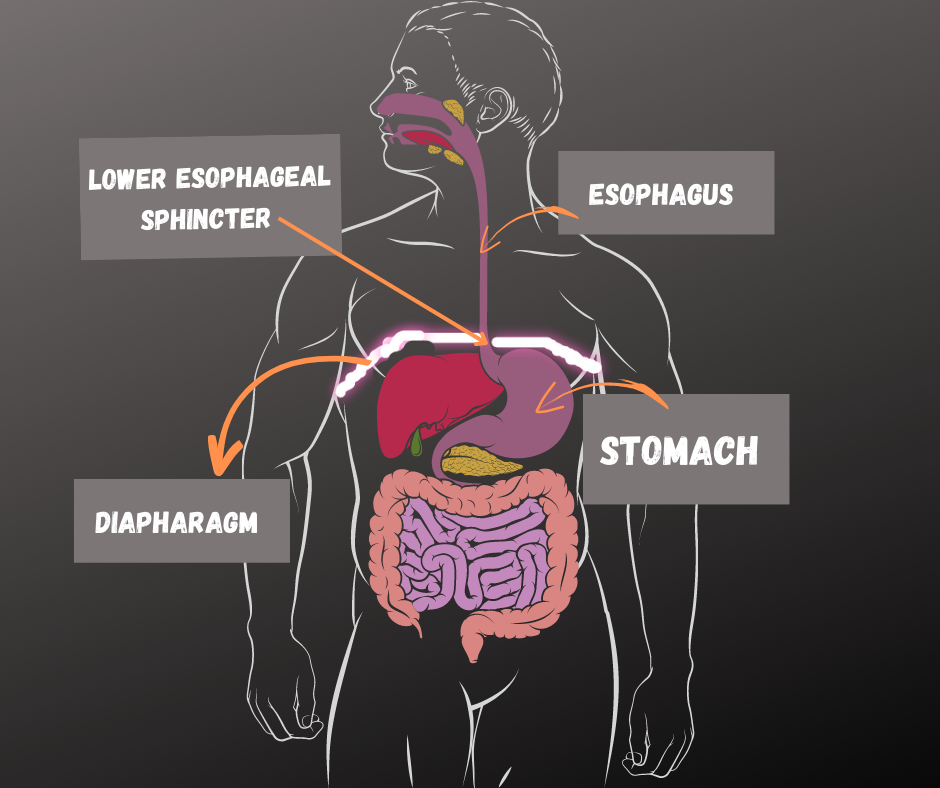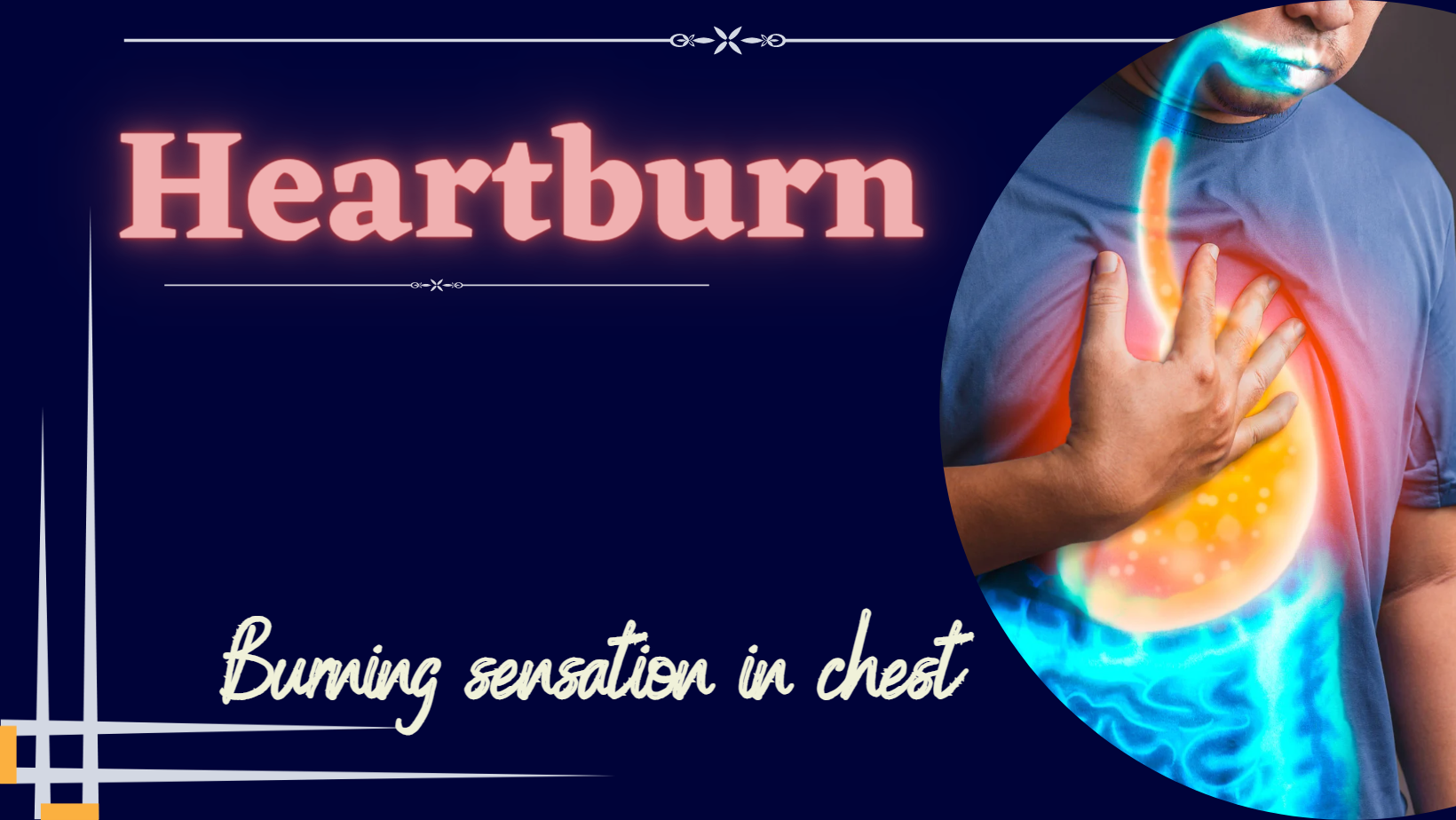Heartburn is a common digestive symptom that affects millions of people worldwide. It is often associated with acid reflux and gastroesophageal reflux disease (GERD), which are conditions involving the regurgitation of stomach acid into the esophagus.
Although heartburn and acid reflux is commonly considered one and the same thing. This is not the case. Heartburn is actually due to acid in the wrong place( in your food pipe the esophagus and thus leading to a burning sensation) and is a symptom of acid reflux and GERD. Whereas Acid Reflux is the backward flow of stomach acid into the esophagus, due to various causes, leading to heartburn.
In this blog, we will explore what heartburn is, how it is related to acid reflux and GERD, and what you can do to manage these conditions.

Definition
Heartburn refers to a burning sensation in the chest that is caused by acid reflux. It is a symptom and not a condition.
Where Heartburn Felt:
The sensation is typically felt in the chest behind the sternum (commonly known as the breastbone) that can radiate to the throat or stomach.
Symptoms:
- It is often described as a burning feeling or a tightness in the chest.
- Other common symptoms include:
- A metallic taste in the mouth,
- Regurgitation of food or liquid,
- Difficulty swallowing
What are the Causes:
- Heartburn is most commonly experienced after eating a large meal, lying down immediately after meals, or bending over.
- Stress and anxiety can also play a role in the development of heartburn.
- Taking certain medications, such as aspirin, ibuprofen, and some muscle relaxants.
- More likely to occur during pregnancy or in individuals who are overweight or obese.
Generally speaking, the causes are similar to acid reflux and GERD as it is the symptom of these conditions.
Foods That Bring Heartburn:
Foods and drinks that can trigger heartburn, include:
- Spicy food
- Citrus food
- Fatty or fried Items
- Caffeine
- Alcohol and beverages
- Chocolates
What is Acid Reflux?
It occurs due to improper closure of the lower esophageal sphincter (LES). This allows stomach acid and other contents to flow back up into the esophagus, causing irritation and inflammation. Acid reflux can occur in anyone, but it is more common in individuals who are overweight or pregnant, as well as those who smoke or have a hiatal hernia.
What is GERD?
In most cases, occasional heartburn is not a cause for concern. However, GERD is a chronic form of acid reflux and heartburn. It occurs when the symptoms of acid reflux occur more than twice a week and interfere with daily life. GERD is a more severe condition than acid reflux and can cause long-term damage to the esophagus if left untreated. Common symptoms of GERD include heartburn, regurgitation of food or liquid, and difficulty swallowing.
What brings Heartburn, Acid Reflux, Or GERD:
The normal mechanism of swallowing involves:
- Properly functioning lower Esophageal Sphincter(LES)
- The tight sealing effect of DIAPHRAGM
- Acid production by the stomach in normal amounts and at the proper time.
- The stomach empties its contents in the intestine at a normal duration after food intake.
Esophagus commonly known as the food pipe is a muscular tube allowing the passage of food and drink into the stomach. Normally the lower end of the esophagus, the lower esophageal sphincter(LES), closes tightly after passing food through it. It is reinforced by the diaphragm which is a fibromuscular sheath, surrounding the lower part of the esophagus and separating the chest from the abdominal cavity. Moreover, stomach acid production is also normal, and under the influence of the food we eat, plus it empties its contents at the proper interval.
In patients with heartburn either the LES is not functioning properly allowing some stomach acid to flow back or the diaphragm around the LES becomes weak allowing some portion of the stomach to protrude into the chest cavity known as HIATAL HERNIA. Both of these factors lead to the regurgitation of food and heartburn. Some foods and drugs can relax LES and increase acid production which can then contribute to symptoms of heartburn. Sometimes, the stomach emptying time is delayed (GASTROPARESIS) which can also lead to GERD but this condition is quite rare.

Treatment Of Heartburn:
The treatment of heartburn, acid reflux, and GERD depends on the severity of the condition and the underlying cause.
Mild cases of heartburn can often be managed with lifestyle changes and over-the-counter medications, such as antacids and H2 blockers.
Lifestyle changes that can help manage heartburn include:
- Avoiding trigger foods and drinks
- Eating smaller, more frequent meals
- Not lying down immediately after eating
- Losing weight if overweight or obese
- Quitting smoking
- Managing stress and anxiety
More severe cases of acid reflux and GERD may require prescription medications, such as:
- proton pump inhibitors (PPIs)
- or surgery.
PPIs are a type of medication that reduces the amount of acid produced by the stomach. They can help prevent acid reflux and heal any damage to the esophagus. Remember! not to start them on your own without consulting your doctor. Surgery may be recommended for individuals who do not respond to other treatments and have severe symptoms or complications, such as Esophagitis or Barrett’s esophagus.
If your symptoms disturb your life, you must consult a healthcare provider.


